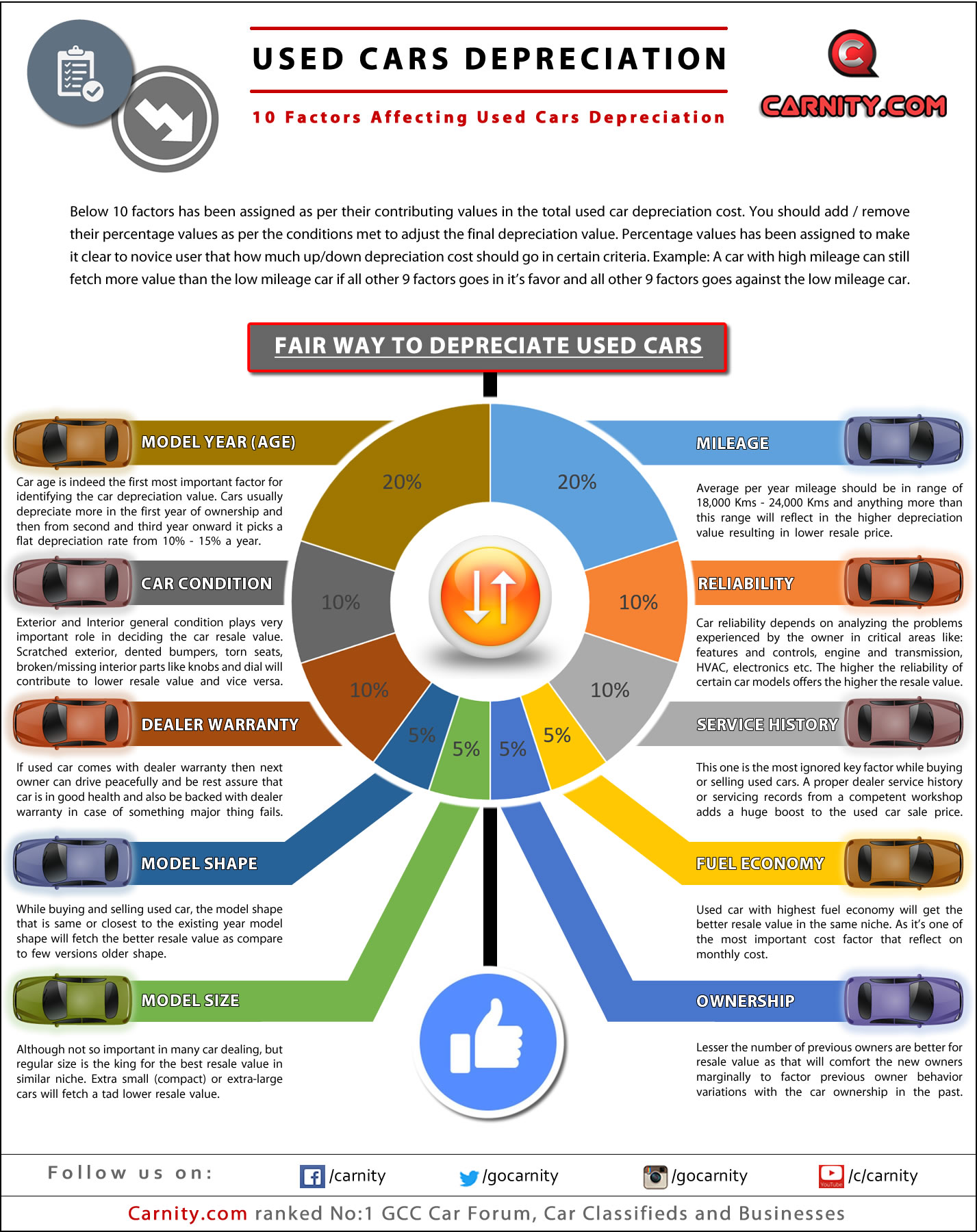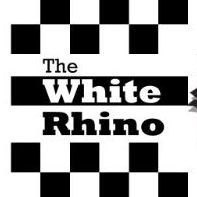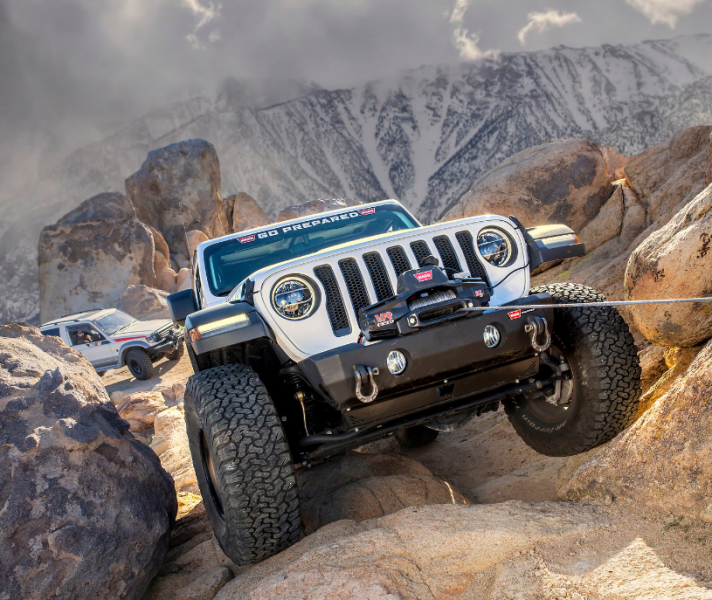Used Cars Depreciation
10 Factors Affecting Used Cars Depreciation
FAIR WAY TO DEPRECIATE USED CARS
Estimated read time: 10 minutes
Apart from the "Age" and "Mileage" there are several other important and notable factors that impact any used car depreciation value. Car's age and mileage only contribute to the 40% of the depreciation value and remaining 60% usually left open without a fair consideration. While buying or selling any used car one should fairly consider all the below 10 points with listed percentage value to evaluate the car at right pricing.
As car depreciation is the main cost factor after the fuel cost, which the car owners need to understand in greater detail to better plan and execute the used car buying and selling intelligently. While buying or selling any used car, the market condition will play important role, so if buyer and seller is reasonably educated on the fair price then car dealing is much easier and effective for both the parties.
Below 10 factors has been assigned as per their contributing values in the total used car depreciation cost. You should add / remove their percentage values as per the conditions met to adjust the final depreciation value. Percentage values has been assigned to make it clear to novice user that how much up/down depreciation cost should go in certain criteria. Example: A car with high mileage can still fetch more value than the low mileage car if all other 9 factors goes in it's favor and all other 9 factors goes against the low mileage car.

-
MODEL YEAR (AGE) - 20%: Car age is indeed the first most important factor for identifying the car depreciation value. Older the car more depreciation will be mounted. Cars usually depreciate more in the first year of ownership and then from second and third year onward it picks a flat depreciation rate from 10% - 15% a year. Usually higher in German, US and UK cars than in Japanese and Korean brands. Click here to understand more on the age depreciation in detail.
-
MILEAGE - 20%: As car are meant to be driven, so with higher mileage you effectively wear out everything in the car from Engine to Gearbox and HVAC to all electronics etc. Average per year mileage should be in range of 18,000 Kms - 24,000 Kms and anything more than this range will reflect in the higher depreciation value resulting in lower resale price.
-
CAR CONDITION - 10%: Exterior and Interior general condition plays very important role in deciding the car resale value. Scratched exterior, dented bumpers, torn seats, broken/missing interior parts like knobs and dial will contribute to lower resale value and vice versa. Secondly, if the car has been involved in an accident and repainted substantially also contribute majorly towards the lower resale value.
-
DEALER WARRANTY - 10%: Needless to say, if any used car comes with dealer warranty then next owner can drive more peacefully and be rest assure that car is in good health and also be backed with dealer warranty in case of something major component fails. Btw, it's a new trend from certain car dealers to not to transfer the existing warranty, so one should better check with the dealer before assuming.
-
SERVICE HISTORY - 10%: This one is the most ignored key factor while buying or selling used cars. A proper dealer service history or servicing records from a competent workshop adds a huge boost to the used car sale price, as it shows that previous owner has done all the required vehicle maintenance as per periodic schedule so that new owner will not pay for the defer maintenance.
-
RELIABILITY - 10%: Car reliability depends on analyzing the problems experienced by the owner in critical areas like: features and controls, engine and transmission, HVAC, electronics etc. The higher the reliability of certain car models offers the higher the resale value. As no one want's to buy the car that break apart after few years and it often goes for sale at dirt cheap prices.
-
MODEL SHAPE - 5%: Almost all car model shape keeps getting changed every 3-5 years unless it's LR defender, lol. While buying and selling used car, the model shape that is same or closest to the existing year model shape will fetch the better resale value as compare to few versions older shape. Yes, this imply to the face-lifted car models even, but does not apply to the reshaped modelling done by the previous owners.
-
FUEL ECONOMY - 5%: Used car with highest fuel economy will get the better resale value in the same niche. As it's one of the most important cost factor that reflect on monthly cost, many new car buyers simply rule out the gas guzzlers which make their demand less and cause for lesser resale value (marginally). Learn more on how to save fuel cost by hypermile.
-
MODEL SIZE - 5%: Although not so important in many car dealing, but regular size is the king for the best resale value in similar niche. Extra small (compact) or extra-large cars will fetch a tad lower resale value unless you are in market for 2 door Nissan Patrol or 2 door Land Cruiser that still hold insane resale value.
- OWNERSHIP - 5%: Lesser the number of previous owners are better for resale value as that will comfort the new owners marginally to factor previous owner behavior variations with the car ownership in the past. Multiple previous owners can also cause the deal to decline if the buyer is very sensitive on this issue, let alone the lower resale value.










0 Comments
Recommended Comments
There are no comments to display.